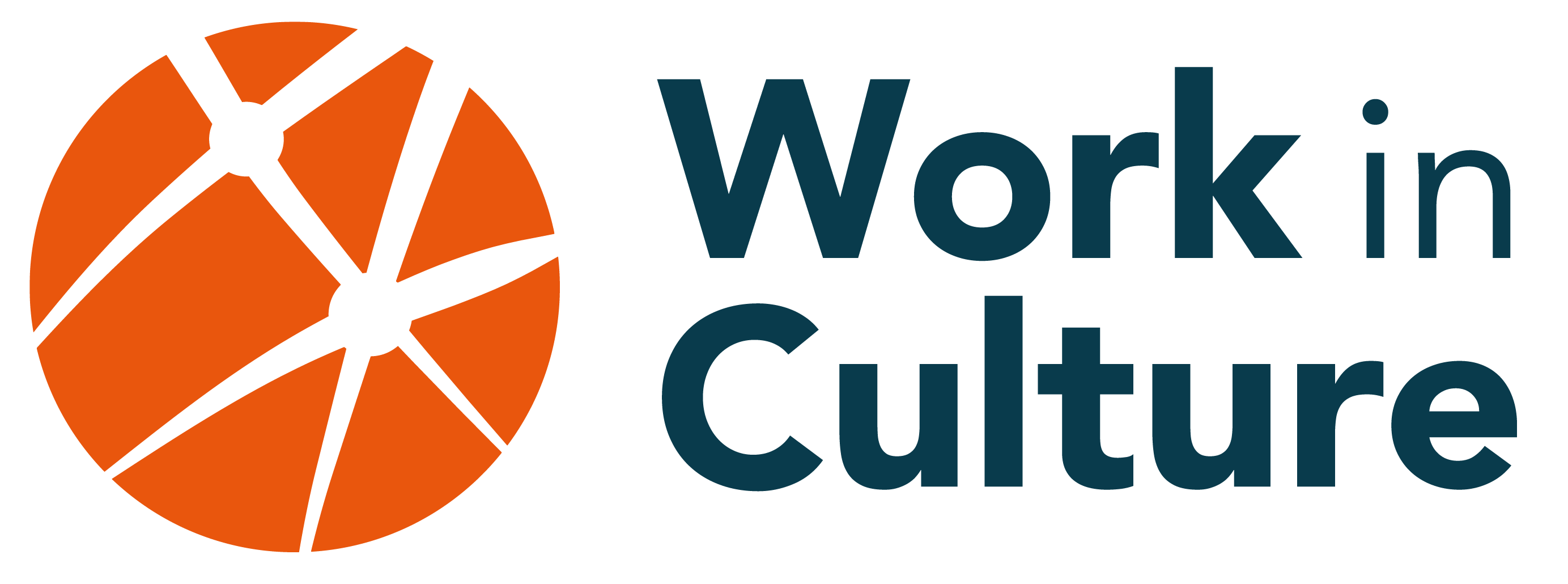Our latest report, “Navigating a Career in the Arts for Newcomers,” highlights the needs and expectations of new Canadian and immigrant artists and arts professionals.
This infographic series is a summary of what we heard from newcomers or foreign-trained artists, creatives and cultural workers; employment services organizations; and arts sector organizations. It also lists four recommendations to achieve better outcomes for new Canadian and immigrant arts professionals.
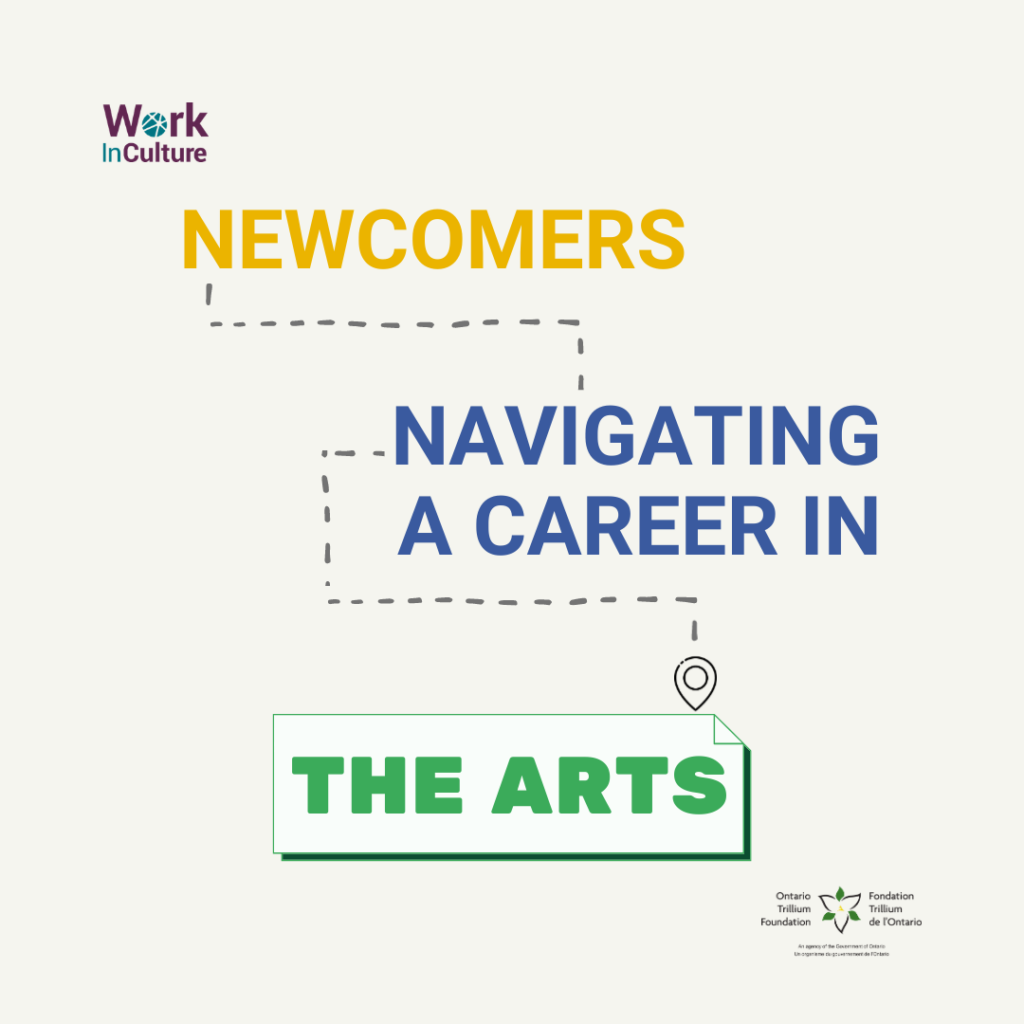
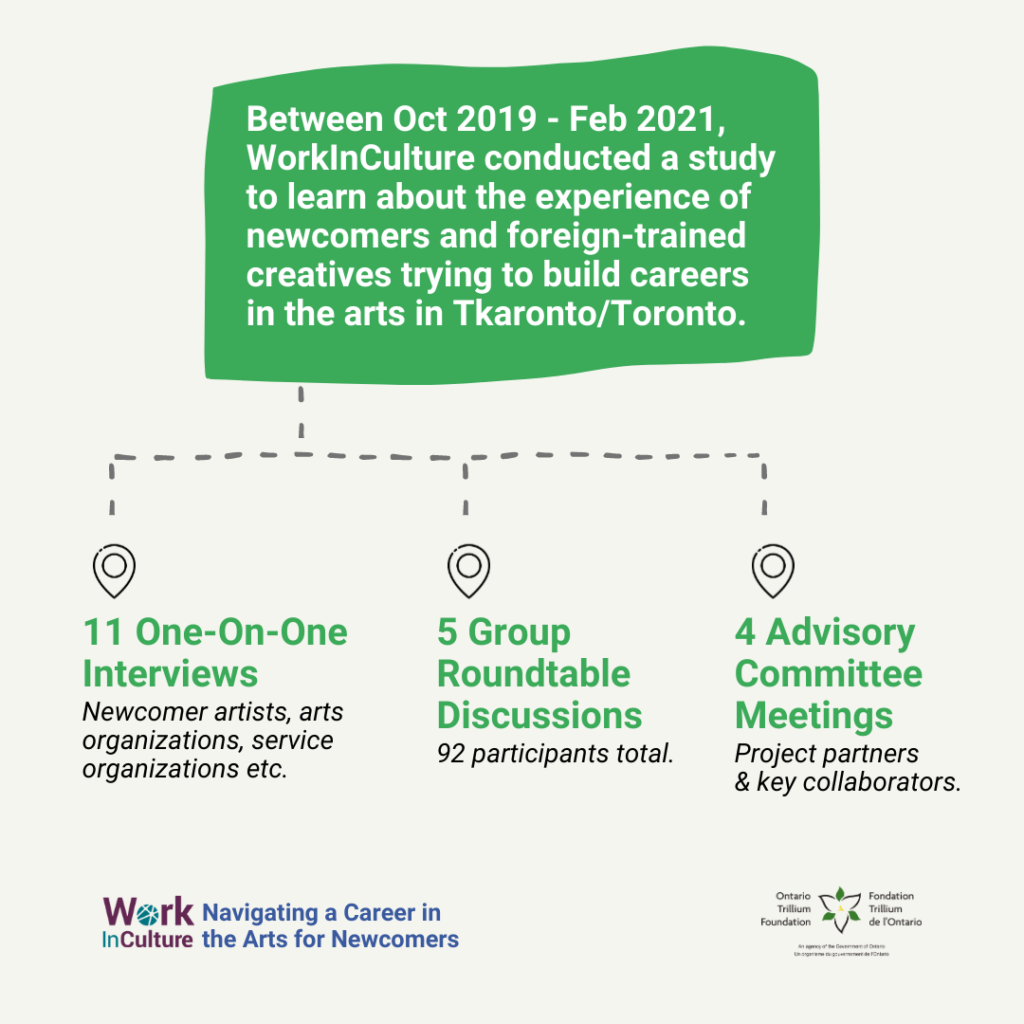
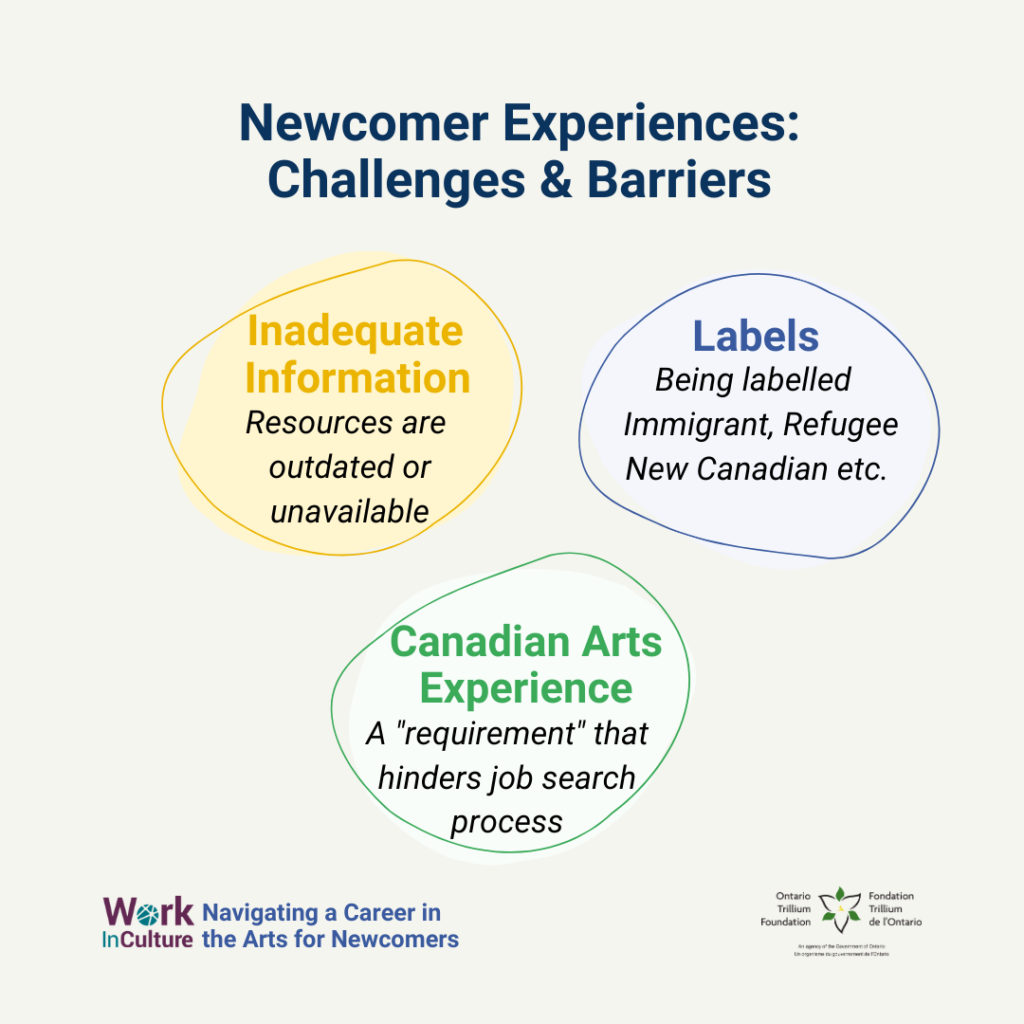
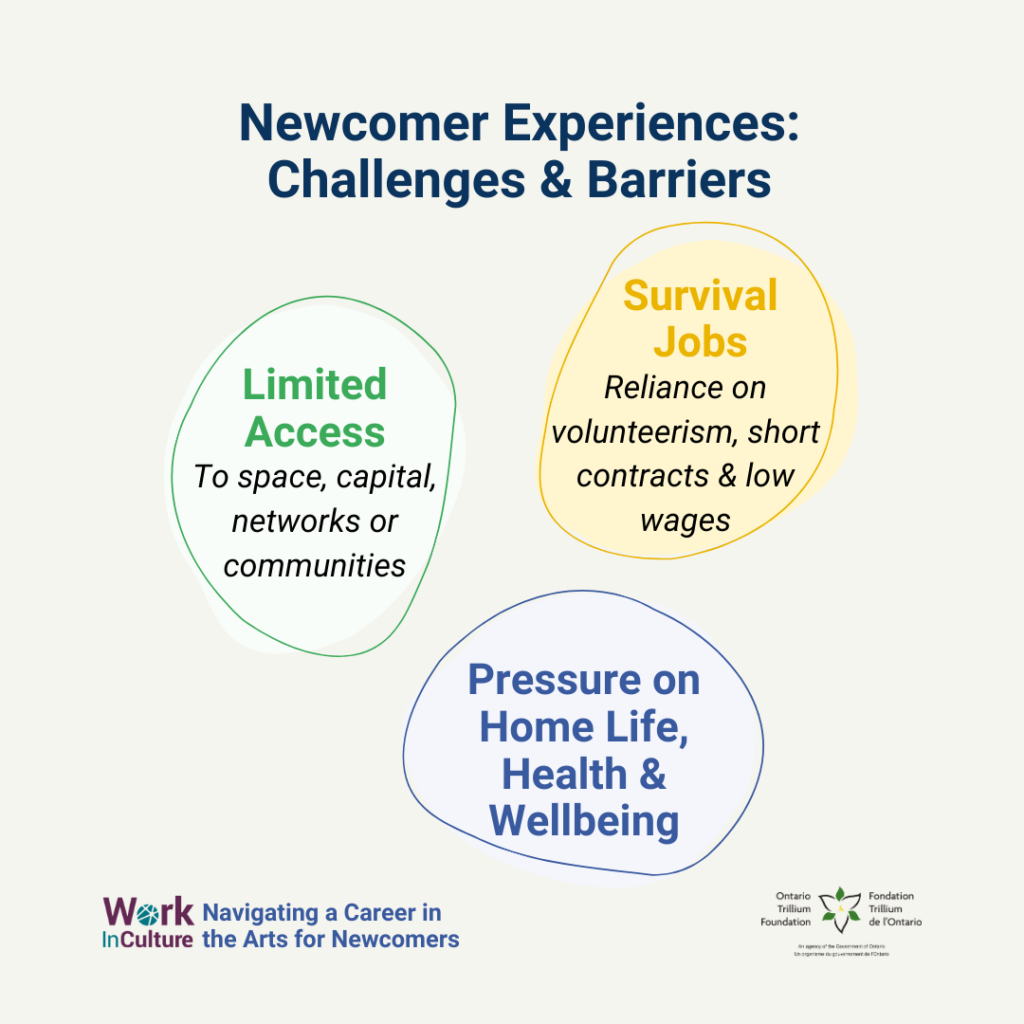
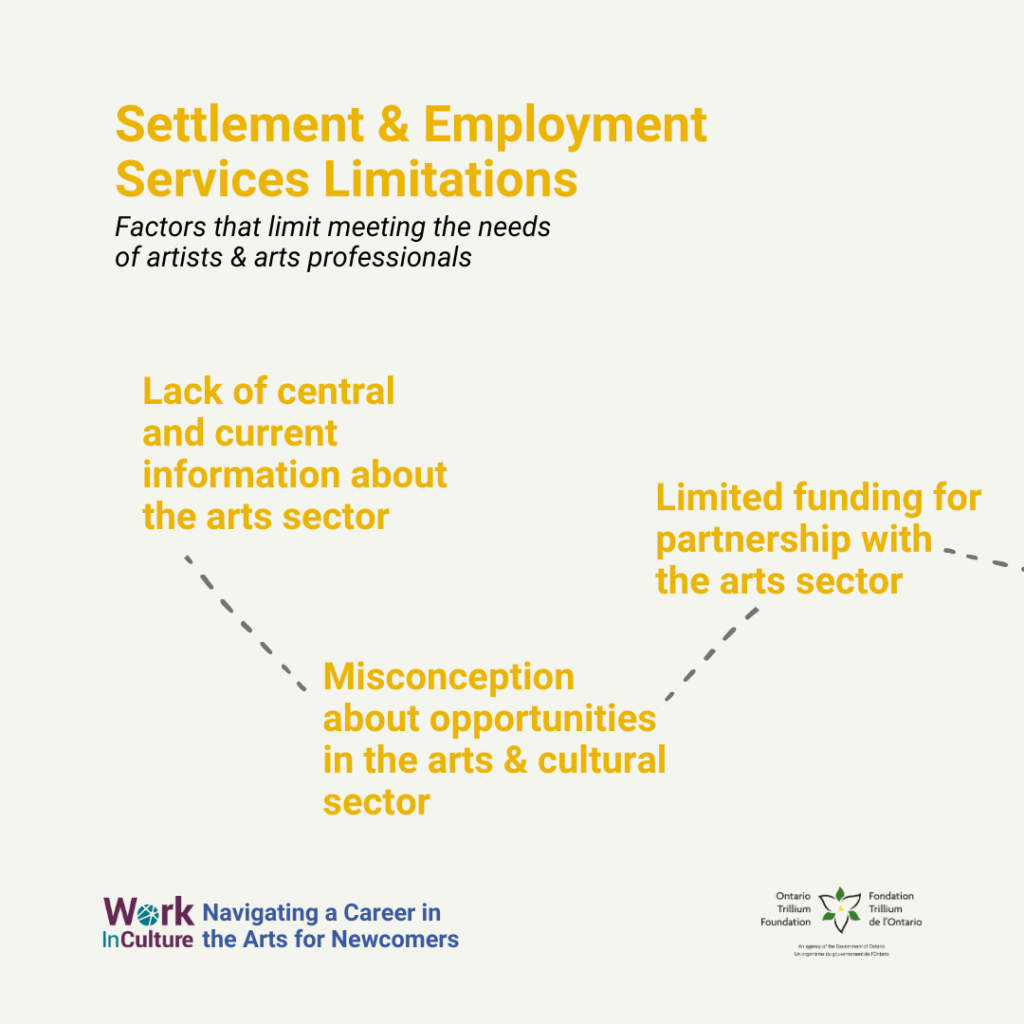
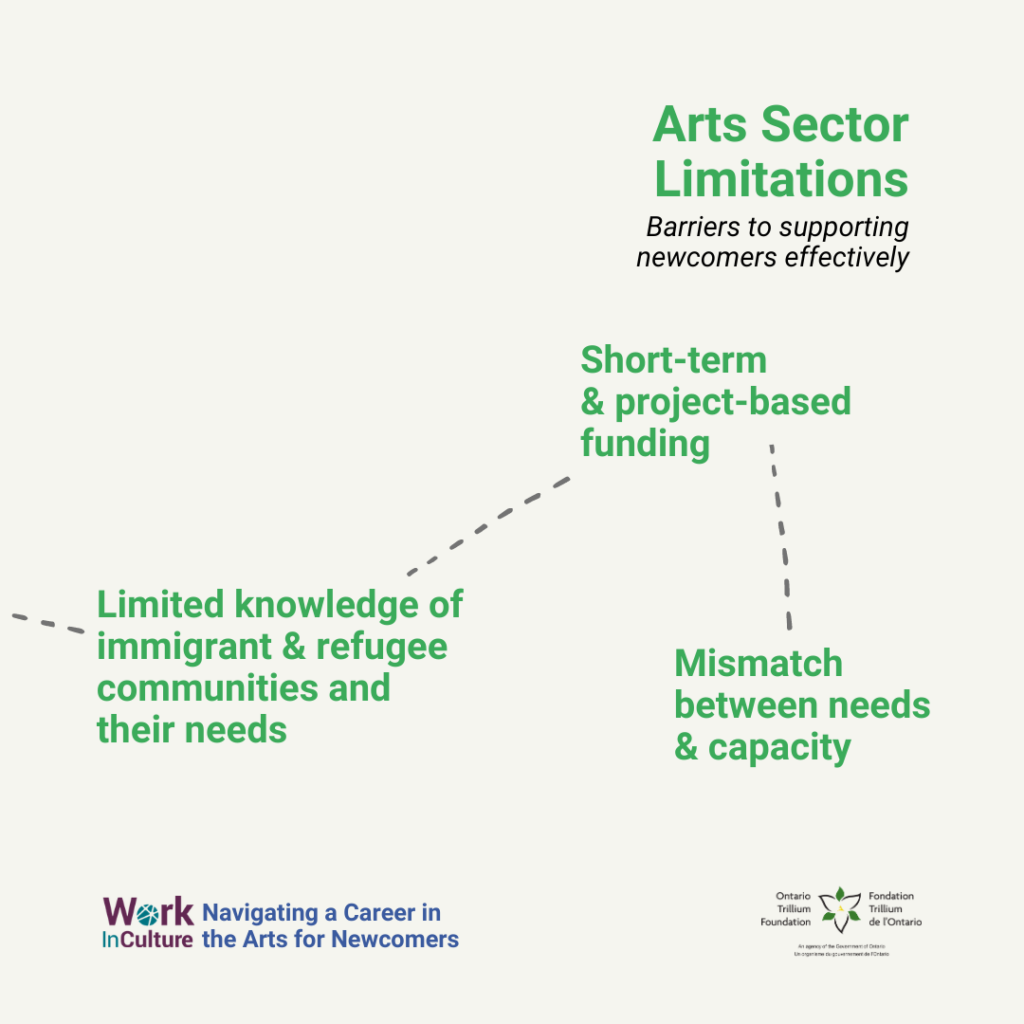
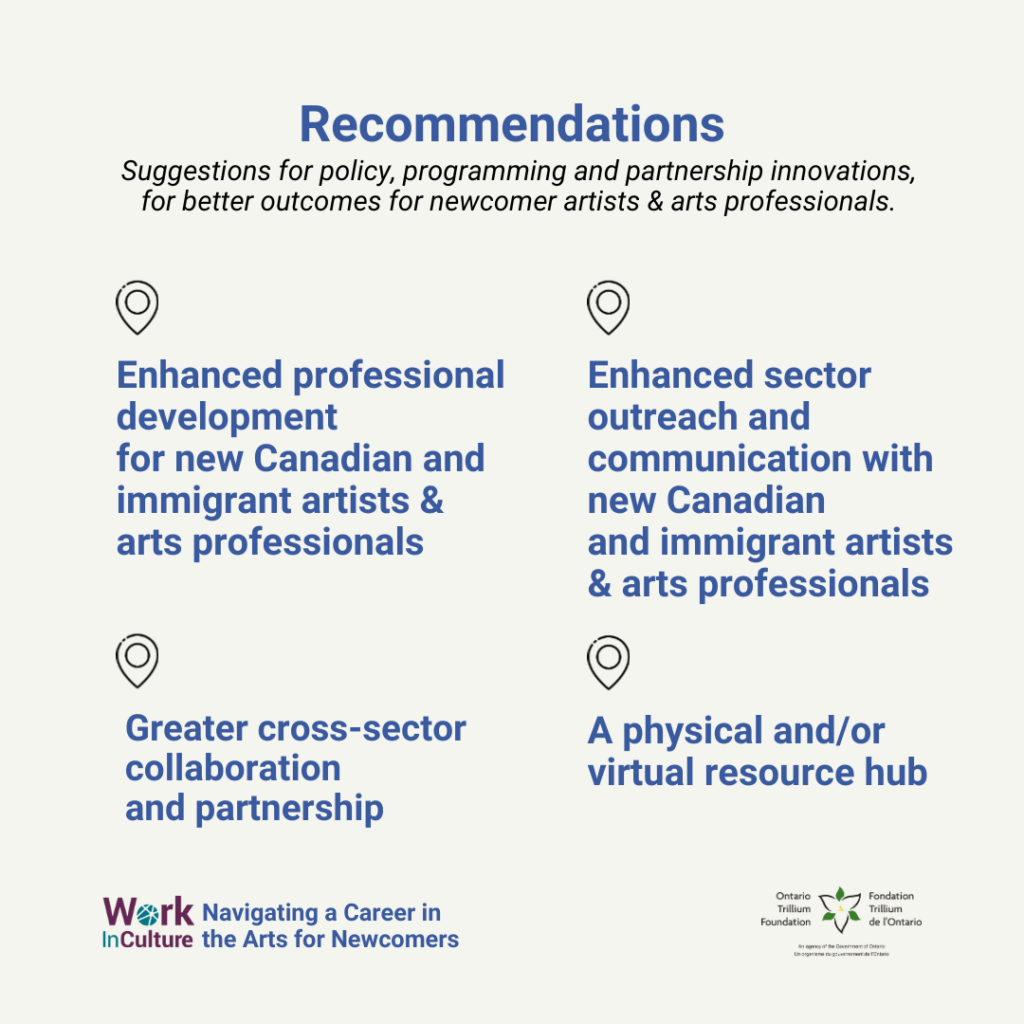
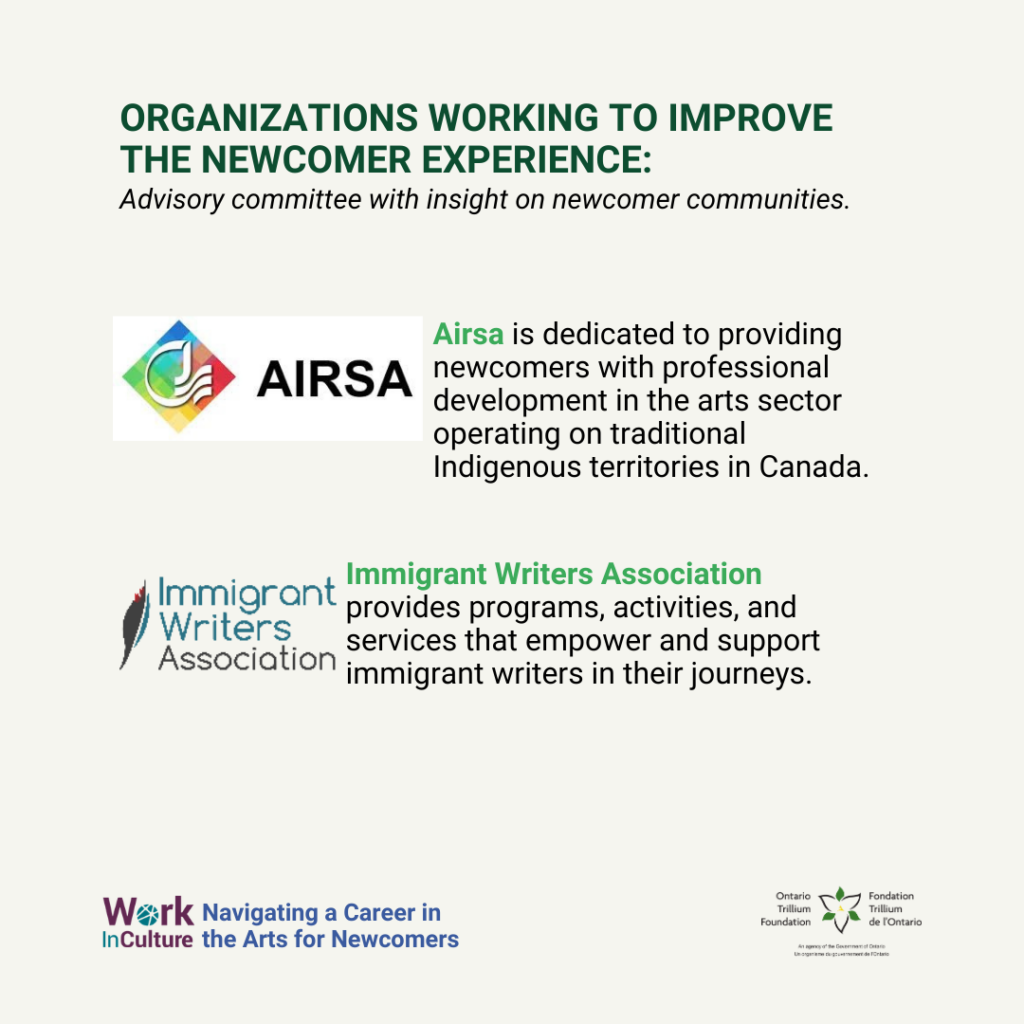
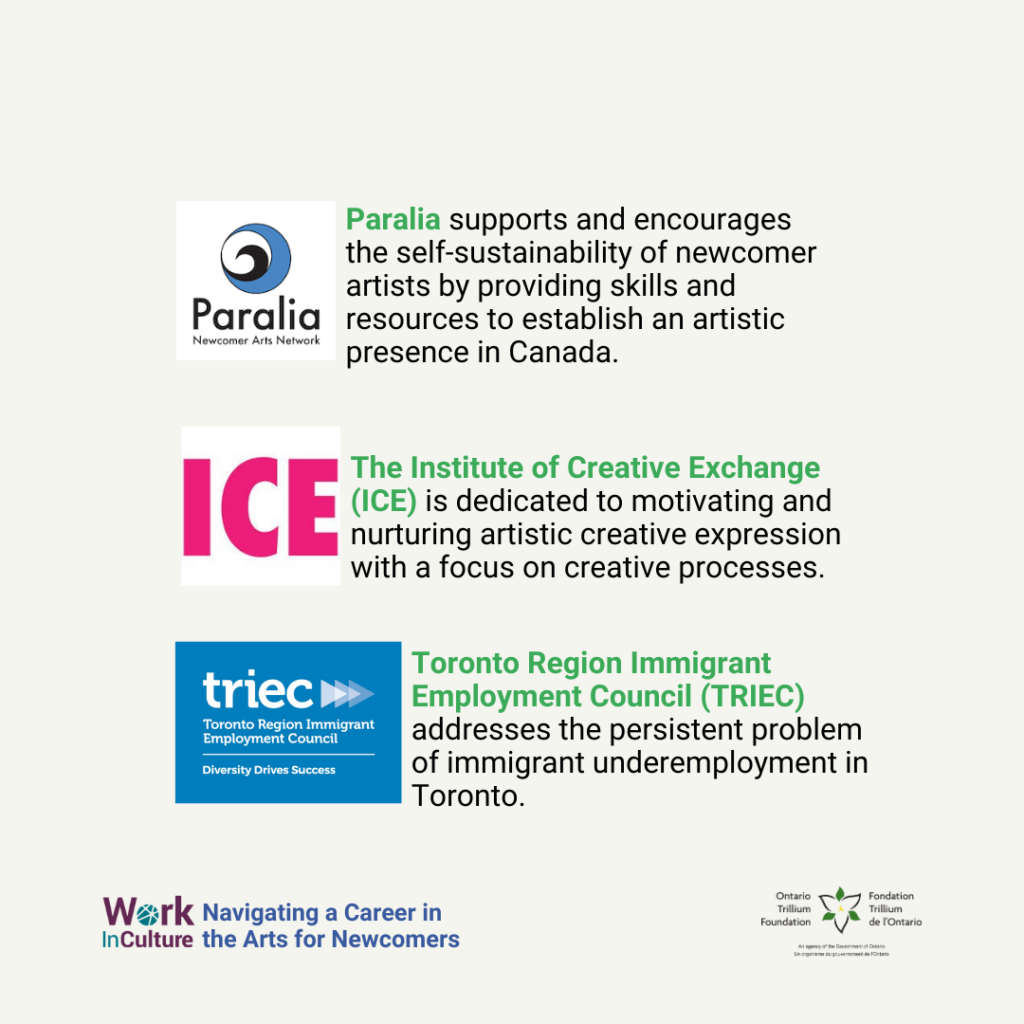

A great thanks to Airsa, Immigrant Writers Association, Institute for Creative Exchange (ICE), Paralia Newcomer Arts Network, and Toronto Region Immigrant Employment Council (TRIEC) for providing advice and key insights on newcomer communities.
Navigating a Career in the Arts for Newcomers is possible due to the support of the Ontario Trillium Foundation.
